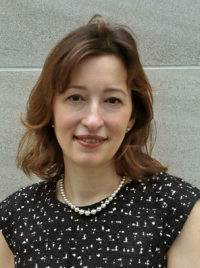ActioN: Addressing global inequities in breast cancer genetic testing, counselling, and management among breast cancer patients in Nigeria
Study Status: Active
Study Purpose: To develop a program to provide genetic testing for breast cancer patients in Nigeria. This study includes providing training to healthcare providers and offering genetic testing to breast cancer patients.
Background: Breast cancer is a significant concern in Nigeria, patients are often diagnosed at advanced stages and survival rates are lower than in North America or Europe. A large proportion of tumors are of a subtype called triple negative, which is aggressive. Additionally, the breast cancer gene mutations BRCA1 and BRCA2 are more common in Nigeria compared to North America. These gene mutations greatly increase breast cancer risk. However, understanding of hereditary breast cancer and access to genetic testing is limited in Nigeria since they do not have genetic counseling services or testing facilities. Healthcare providers are aware of these barriers and are interested in making testing more available and increasing knowledge about genetic mutations. This study aims to improve access to genetic testing services and explore possible ways to offer genetic testing. Overall, this study aims to improve management of hereditary breast cancer in Nigeria.
Study Methods: 1. We will develop an educational curriculum about genetic testing and counselling. Healthcare Professionals in Nigeria will take the course. To measure if their knowledge improves, we will give the healthcare providers a short quiz before and after they complete the curriculum and compare the results.
2. We will create educational materials for patients to learn about genetic counseling and testing. This includes a booklet and three videos.
3. We will conduct a pilot study to analyze the number of BRCA1 and BRCA2 mutations in people diagnosed with breast cancer in Nigeria. We aim to recruit 100 participants across 3 sites. Saliva genetic test kits will be mailed in for sample collection. Trained Healthcare Professionals will communicate the results in a supportive and culturally sensitive manner.
Health Conditions: Cancer
The ABODE Study - At-home Breast Oncology care Delivered with E-health solutions
Study Status: Active
Study Purpose: To measure if an app (mobile application) can improve the knowledge, skills, confidence, and overall experience of people who have recently been diagnosed with breast cancer. The app we are testing was created by the study team specifically for breast cancer patients.
Background: Last year, more than 12,000 women in Ontario were found to have breast cancer. The COVID-19 pandemic changed how healthcare works, making it important to have high-quality virtual (online) care. Mobile health, meaning getting health services on phones, has become a part of virtual care. In this study, we created an app to make breast cancer patients’ virtual care experience better. With this app, patients can:
* Answer surveys about their health.
* Get information and resources about their cancer & treatment from a health library.
* Get mental and social support from an e-coach.
(E-coaches are volunteers trained to help and support patients. They give information, listen to how patients are feeling and help patients find things they might need).
Study Methods: Newly diagnosed breast cancer patients will be randomly put into one of two groups: one group will get to use the ABODE app, while the other will continue to get usual care without the app.
* Patients with the ABODE app will use it for 13 months.
* During the study, at 6 and 12-months, people in the study will be asked about their experience, and how they are feeling physically, mentally, and emotionally through online surveys.
At the end of the study, we will:
* Interview e-coaches and patients to hear about their thoughts and experience using the app.
* Compare how active people are in their own care between the group with the app and group without the app and see how it changes over one year.
* Compare how nervous people are, how they are feeling emotionally, and their overall quality of life between the app group and no-app group.
* See how often patients used health services.
* Know how satisfied all the patients are with their care plan to understand how helpful the ABODE app is to breast cancer patients.
Health Conditions: Cancer




